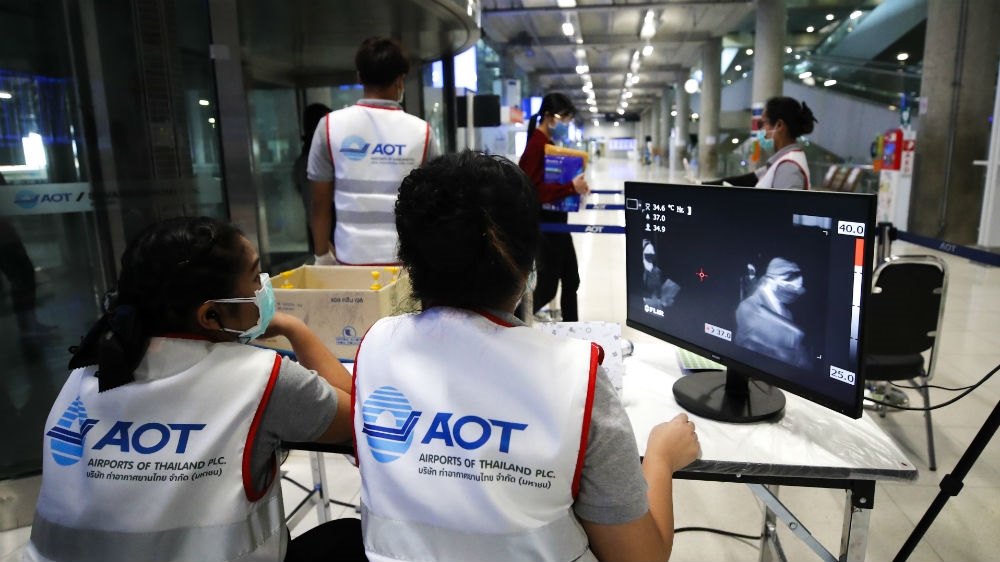Thais left stranded overseas slam coronavirus policy confusion
‘Fit-to-fly’ rules leave Thai students, professionals, struggling to get home amid confusion over repatriation flights.

Bangkok, Thailand – When Chayanan “Ann” Meesomboonpoonsuk, 23, left Thailand to study in the Netherlands in June, she never imagined that in a time of global crisis, her own country would block her from being able to return home.
Ann was in the Czech Republic when the pandemic started to spread across Europe.
Expecting that borders could start tightening up and on the receiving end of racial slurs from passersby in Prague, she quickly scrambled to return to her campus in Rotterdam so she could figure out how to go home to Thailand.
“At the time I got back to my dorm, most Asian students (had) already booked a flight back to their countries within that week,” Ann told Al Jazeera. “However, I decided to quarantine myself first as I spent around ten hours on a bus. During my quarantine time, the Thai government released new requirements for Thais flying home.”
As cases started spiking all over the globe in mid-March, Thailand imposed a fit-to-fly health certificate policy for all nationalities, including its own citizens, in a move that came as a shock to many of the more than one millionThais, including students and working professionals, living overseas.
|
|
A “fit-to-fly” certification is essentially a letter issued by the Thai embassy, a health insurance policy that covers COVID-19 and a doctor’s note, signed no later than 72 hours before the passenger boards their flight.
For Ann and her friends, it proved almost impossible to get one.
“My friend called four clinics to ask if they can provide the health certificate, but only one could provide it!” she said.
Many flights were also being cancelled, raising the risk that the hard-to-get health certificate would end up being worthless, and Ann was also hearing stories about forced quarantine in state-run facilities for those who had made it home.
She decided to wait out the crisis in Rotterdam.
‘Stay overseas’
Prime Minister Prayuth Chan-ocha has advised citizens overseas to “shelter-in-place” in their countries of residence rather than returning, in order to limit the spread of the virus.
But some land borders are due to open on Saturday, and officials estimate about 8,000 Thai citizens in Malaysia are ready to cross the border there once it reopens.
Only 300 people will be allowed to cross each day, however, because of limited capacity in the state-operated quarantine centres where people will need to spend the 14 days following their return.
“We are trying to protect over 60 million people at home currently, so please, if it is possible, continue to stay overseas,” government spokesman, Dr Thaweesin Visanuyothin said, urging patience.

It remains unclear if the government will arrange flights for Thais abroad, or if they will need to organise flights themselves. Other countries in the region such as Malaysia, have already arranged a number of evacuation flights for citizens stranded overseas.
Last week, Dr Thaweesin said more than 5,000 Thais were ready to return to the kingdom by air once the flight ban was lifted on April 30.
Officials suggested on Tuesday that Thai nationals would be able to fly into Hat Yai International Airport in the country’s south after Saturday,
But for many of those now stranded, the government’s response brings with it a sense of neglect and even rejection from their own country.
“The most important reason why we are so upset is that we should have the right to go back to our own country,” said Ratmanee, a 32-year-old student living in London, who preferred not to use her full name out of fear of repercussions from the government.
“We are OK to be quarantined by the state,” she said.
‘A band-aid on a broken leg’
Ratmanee explained that many other students in her position who would like to return home feel that government agencies are simply not doing enough. She says they were confused by unclear regulations that seemed to be constantly changing.
“We feel like the government lacks empathy,” she said, highlighting that the regulations are far from concrete and there are many questions over how they will be implemented.
The fit-to-fly rules are not only extreme, but also suggest a policy that was not thought through, said prominent political and social commentator, Voranai Vanijaka who does not think what has come to seem like a ban was intentional.

“They simply can’t stick to a plan of how to remedy the situation and everything is done on the fly,” he said. “There’s no thought out plan on how to handle COVID-19.
“The public mood is this: we want the government to do something, the government wants to appear to do something, and this is their way of doing that. It’s like putting a band-aid on a broken leg, pretending it’s just a flesh wound, not broken. Meanwhile, the bone is sticking out.”
Ann and Ratanee say they are lucky because they are financially stable and have education visas, which are not about to expire, but they said they have heard that other Thais are facing much more difficult circumstances.
Some cannot afford the cost of a lockdown overseas, while some students are struggling to keep a roof over their heads. Others have been left in limbo in airports.
For Jenny Suwanmanee, another Thai student stuck in the Netherlands, the whole situation has simply added to the stress of an already challenging time.
“In a crisis like this, it should be the responsibility of the government to care for the safety and wellbeing of citizens, not providing more difficulty and uncertainty for others,” she told Al Jazeera. “We are all in this together and must take care of each other instead of leaving one another stranded with nowhere to go.”